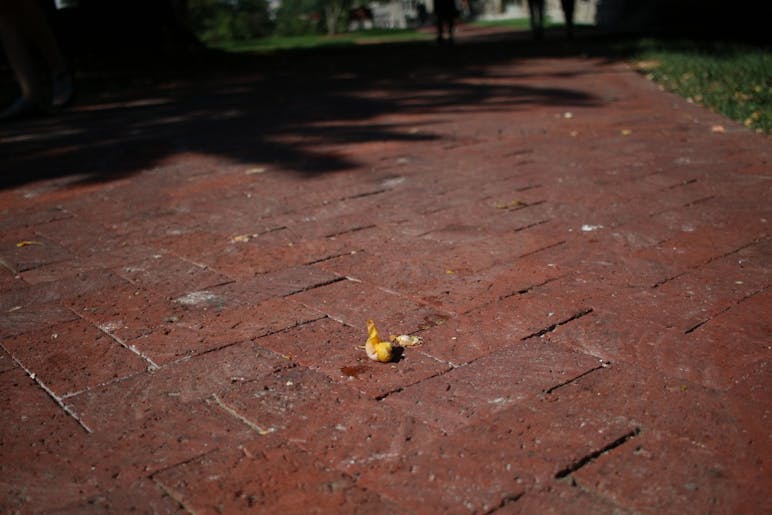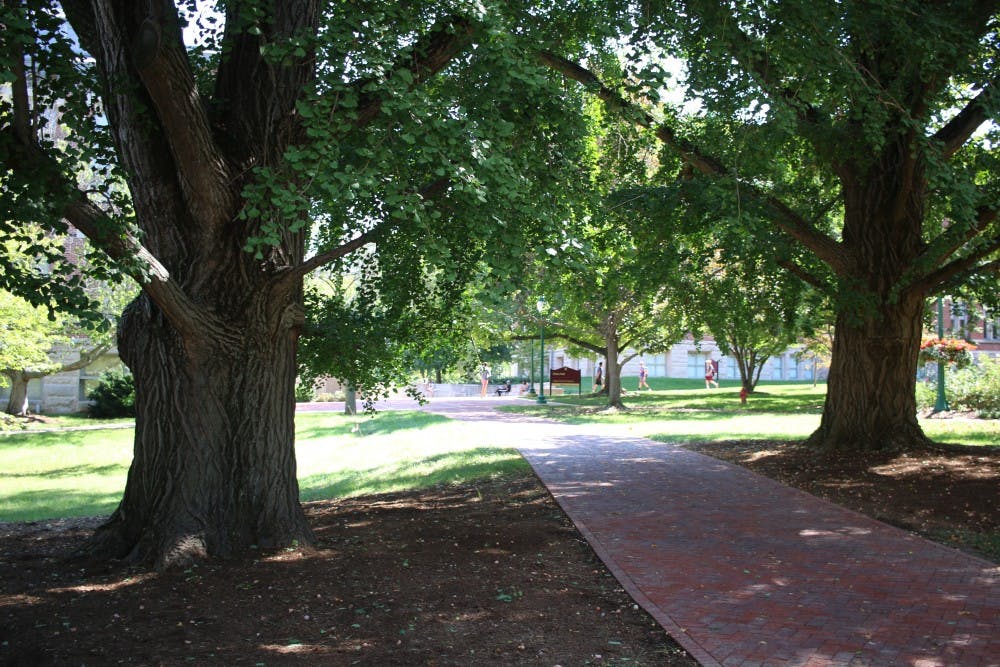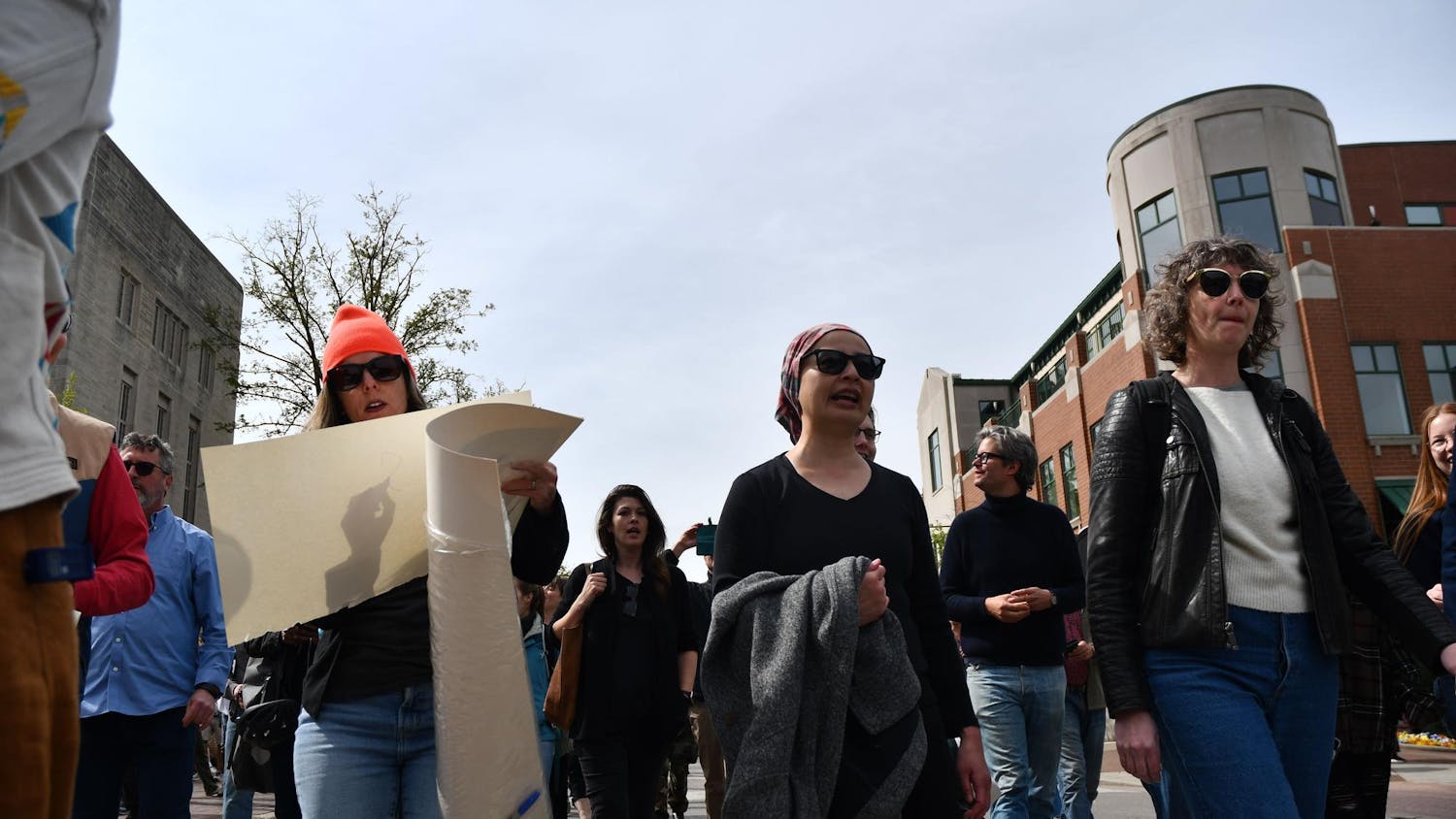Less than a week away, IU’s fall comes with a distinct and rather unpleasant reminder that it has officially arrived. If you have walked past Maxwell Hall or the Student Building in the later months of the year, your senses have likely been overwhelmed by an obnoxious odor.
The source of the smell is not from someone who forgot to clean up after their furry friend, but rather IU’s infamous Ginkgo trees.
“I had a class near them, and I purposely walked out of my way to avoid them,” sophomore Niki Pizzato said. “The Ginkgo trees are the worst and should be nowhere near here.”
Adorned with fan-shaped leaves, these trees stand tall and mighty near the Dunn's Woods. The smelly giants are hard to miss mixed in among the American Beech and Red Maple trees.
“The female trees are the ones that give off the smelly fruits in the fall,” said John Lemon, Jordan Hall Greenhouse supervisor.
When stepped on or left to rot on the ground, these apricot-like fruits emit an odor that has been likened to the smell of vomit, dead fish or canine droppings.
As one legend has it, Purdue University gifted the Ginkgos to IU years ago, but this made Lemon chuckle.
“I don’t have any information on that subject, but I can tell you about the benefits of eating the seeds,” he said.
He said the seeds of the Ginkgo fruits are edible. If you can get past the smell, eating them can improve your memory.

After 46 years of looking after the vegetation in the Jordan Hall Greenhouse, Lemon can typically be found with a hose in hand tending to the various plants housed under the glass roof.
He said he once gathered some of the fruit in an attempt to bake the seeds and see what the fuss was about.
“I washed and washed them, but I couldn’t bring myself to put them in my oven or my mouth. They just smell too bad.”
While the idea of replacing the trees may sound tempting to some, they are considered protected by the University.
“To cut a tree unnecessarily has long been an act of treason against our heritage and the loyalty, love and effort of our predecessors who have preserved it for us,” Herman B Wells said, according to a brochure by the School of Public and Environmental Affairs.
Trees can be cut and removed only when they fall from natural causes or from old age because the debris then becomes hazardous. Since the Gingkos are not dropping branches, the trees are likely here to stay.
“Just watch where you step,” Lemon said.
This story was originally published April 26.




